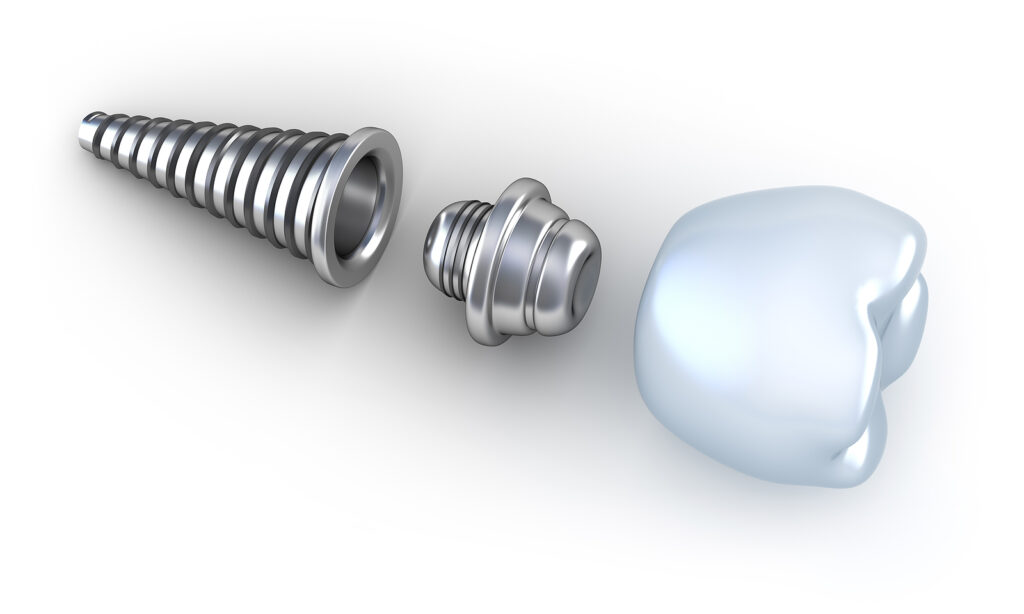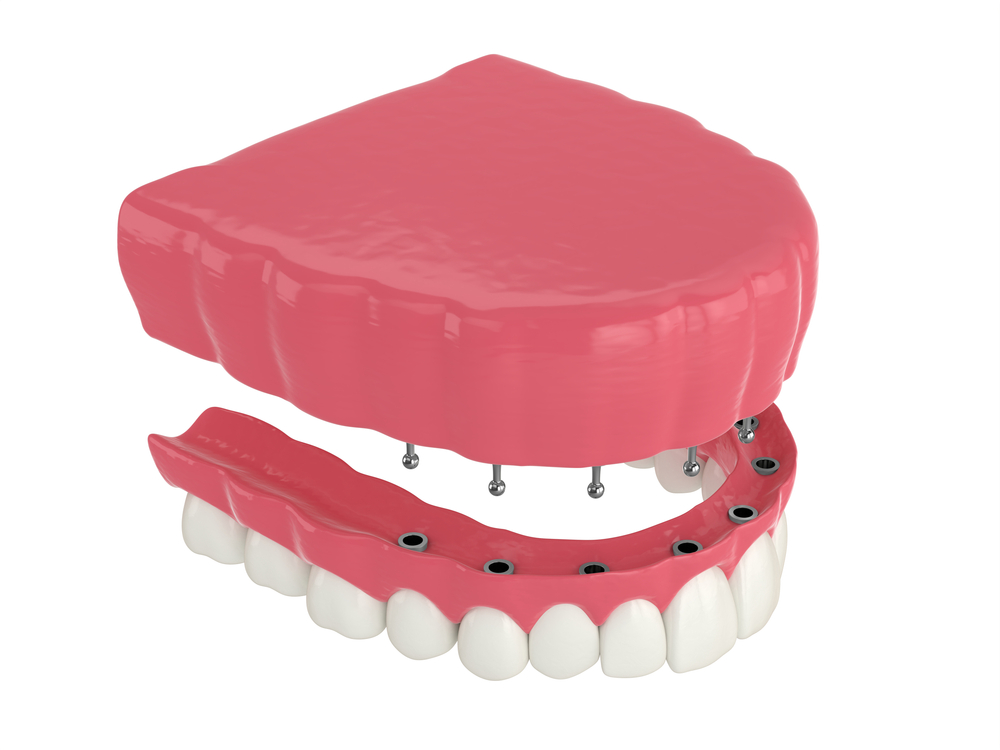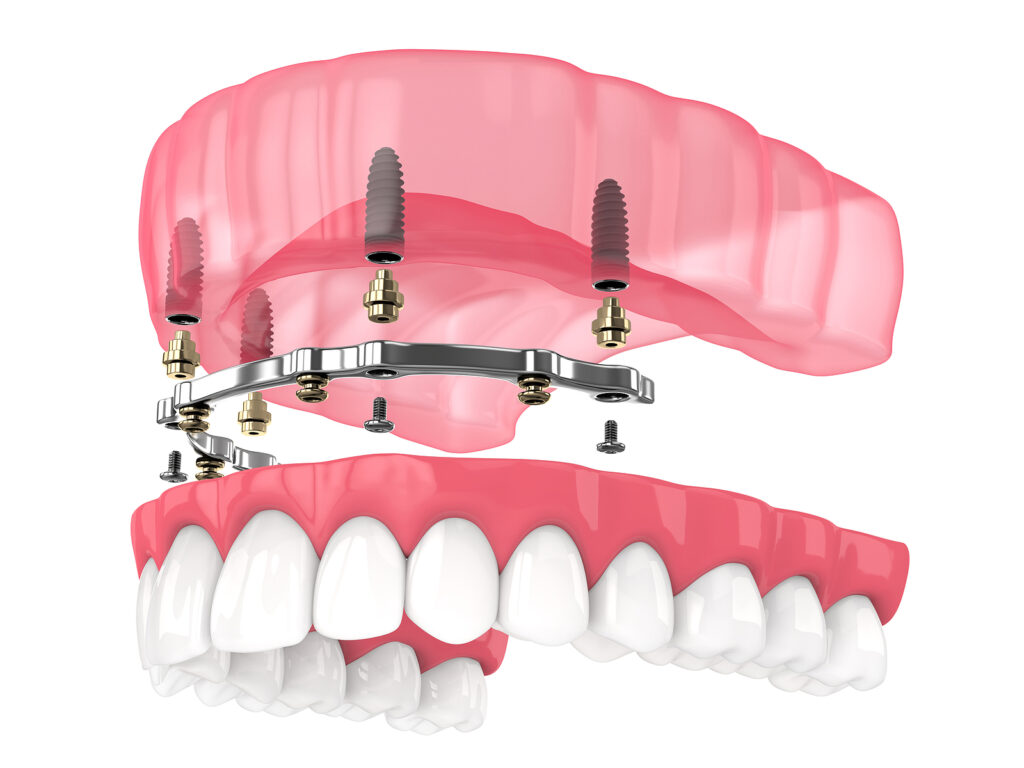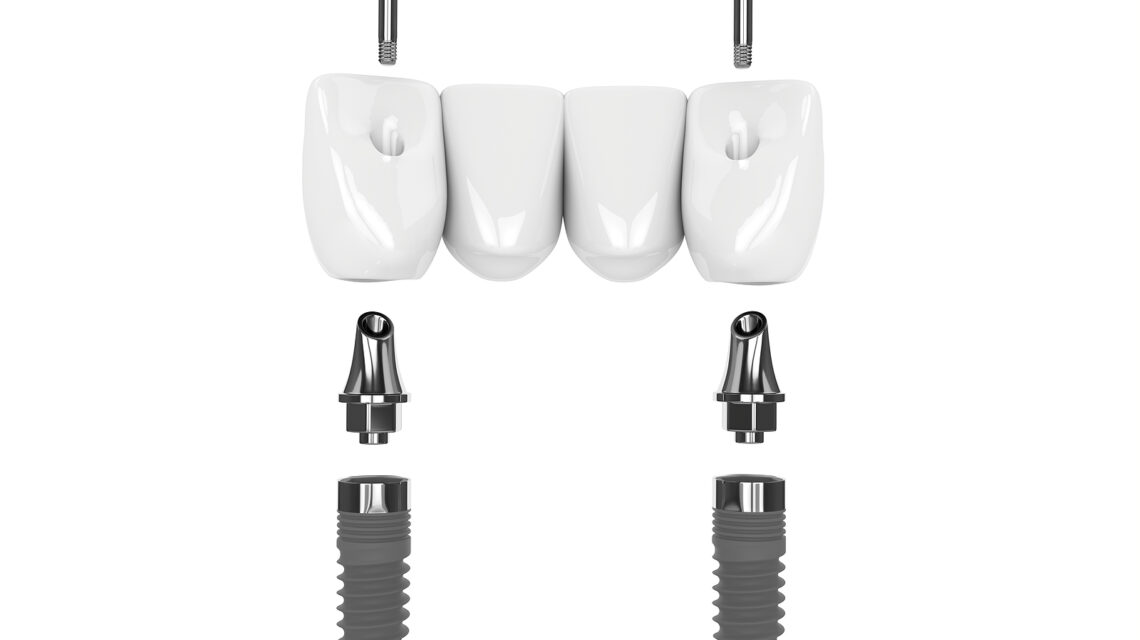If you're missing one or more teeth, you might be wondering if you should opt for a dental implant or a bridge. In this article, we will discuss both options in detail. You can also learn about screw-retained dentures, overdentures, and Implant bridges. After reading the following, you should be able to make a decision on whether a dental implant is the best solution for you. Listed below are some benefits of this procedure.
Table of Contents
Implant dentures

A patient may opt for implant dentures or removable dentures, depending on their needs. Implants, which are titanium posts placed in the jawbone, are used to replace one or more missing teeth. After the implant surgery, patients are allowed to return to work and normal activities, but they should avoid strenuous exercise for several weeks. During the healing process, a patient must use a medicated mouthwash and follow a soft food diet.
Once the implants have healed completely, a second surgery may be required to uncover them and attach the extensions. Temporary dentures may be used for up to a year while the implant system heals. Once the implants are attached to the supporting teeth, a connecting device will be placed on the teeth to hold the permanent denture in place. In some cases, a patient may not need a second surgery. After the implant procedure, the patient will need to visit a dentist for regular cleanings and follow-up appointments.
While dental implants are often considered the better option, quality dentures may still be an affordable and reliable alternative. A dentist can provide recommendations for the right procedure for you. Once you've made a decision, you should make an appointment with an implant dentist to see how they can help you. When considering the cost, keep in mind that dental implants are very expensive, so it's important to do some comparison shopping. There are also other factors to consider before making a final decision.
Another benefit of implant-supported dentures is their stability. They are secure, feel like your natural teeth, and have less sensitivity on the gum tissue. Also, they look more natural than conventional dentures, so wearing them will not cause your jawbone to shrink. This may help protect your jaw from losing bone. If you have missing teeth, an implant-supported denture may be the best option. It's important to note that the process is not a quick one. You may need to visit several dentists to receive a permanent set of implants.
Implant bridges
Implant bridges are artificial tooth replacements that screw into your teeth. This process can take a few hours or a few days. Most patients can return to their normal activities after the procedure, and they can take over-the-counter pain medication to soothe their discomfort. The procedure can also be completed in a single appointment. Implant bridges replace one or more missing teeth, usually in the anterior region. They are also a good choice if you have missing teeth that are too difficult to replace with other dental appliances.
There are several advantages of an implant-supported bridge. First of all, they are less prone to decay. Second, they don't require cutting down adjacent teeth, as the process for traditional bridges does. Third, an implant-supported bridge is more affordable than removable dental bridges. However, you should consider your own personal financial situation before choosing the treatment. In addition to aesthetics, you should consider your budget before choosing the procedure.
Lastly, implant-supported bridges are virtually maintenance-free. They last for a lifetime, as long as you practice good oral hygiene and care for the implant. Implant placement is considered minor oral surgery and carries a very low risk of complications. However, your doctor may require a temporary bridge during this time, while the bone heals. The final bridge will be fitted by your dentist once the implants are healed. In many cases, this process will take a few months.
The cost of dental implants is not covered by dental health insurance. But you might be able to find financing options for this procedure. Besides, dental implants are often the most expensive dental restoration, but in the long run, they are much cheaper than their counterparts. The procedure may not be covered by your dental health insurer, so make sure you check with your financial department before beginning any treatment. If you have no insurance, you can also ask your dentist about payment plans.
Implant overdentures

The best way to retain the stability of your dentures is to have them attached to dental implants. Overdentures, or implant-supported overdentures, have many advantages over traditional dentures, including the ability to prevent bone loss and better support your nutritional needs. They can also help you achieve a more youthful appearance by retaining the bone in your jaw. These benefits make implant-supported overdentures an excellent option for those who have lost all their teeth and are in need of a removable solution.
The attachment system used for implant overdentures varies depending on the procedure used. One attachment system uses resilient attachments on the free-standing implant abutments, while another utilizes a rigid bar assembly to connect the implants. Another attachment system uses magnets. This option is not for everyone. Some patients opt for a combination of the two. Implant overdentures can be attached to a single tooth, or several.
The second procedure involves uncovering the titanium implant heads. The gums are then covered with healing caps. Then the overdentures are fitted on the implants, ensuring a perfect fit. The prosthodontist will work closely with you to determine the final fit. Implant overdentures can improve both the look and function of your mouth. There are many benefits to this procedure. Once you are satisfied with your new dentures, you will be able to eat, speak, and smile again.
Several factors determine whether you're a candidate for implant overdentures. First of all, you should be healthy enough to have your teeth extracted. A patient should not have any osteoporosis or other medical conditions that would prevent them from undergoing the procedure. Furthermore, patients should not be too ill or too young for implant overdenture therapy. Also, patients should be aware that implant overdentures require a minimum of two implants to be properly supported. This allows for optimal stability.
Hybrid screw-retained dentures

During the placement of your new hybrid screw-retained denture, your dentist will create a digital impression of your mouth so he can determine the best placement for your new dentures. Once the impression is approved, a small amount of surgery will be performed to place the titanium screw in your teeth. Afterward, your dentist will place temporary screw-retained dentures that attach to the implants.
The benefits of hybrid dentures are obvious. They look like natural teeth and don't cover the roof of your mouth. This means you can eat and drink freely without worrying about your denture slipping or irritating your gums. Additionally, you won't have to worry about messy adhesives or creams, which can lead to gum irritation and denture slipping. This type of denture also increases the strength of your bite.
Another benefit of hybrid screw-retained dentures with screw in your teeth is that they are less bulky than removable dentures. However, if you don't clean your hybrid dentures properly, you may experience discomfort. Regular brushing and flossing are essential in order to keep them free from plaque. In addition to brushing, you should visit your dentist regularly to have your dentures checked.
The treatment of a hybrid screw-retained denture can be performed in a variety of ways. Edmonton Denturists will be able to recommend a method for you based on your unique situation. For example, if you have had all of your teeth extracted and are in need of a provisional fixed denture, the All-on-4 protocol is used. The procedure involves the placement of four implants and a provisional fixed denture to be worn for about three to six months.
Mini-screws
Although most minor problems associated with screwing in teeth are easily fixed with a simple tooth-colored filling, some patients may experience more significant problems. Mini-screws are typically inserted between the root and the tooth. During placement, the mini-screw may accidentally contact the root surface. However, this minor risk is relatively minor and heals in about twelve to eighteen months. Mini-screws can also become loose after a few months, but a subsequent visit can easily replace them in their original position. Almost 80 percent of patients who receive this procedure have good results.
The diameter of the mini-screw will determine its stability in the bone. Mini-screws with a diameter of 1.2mm to 2.3mm are considered stable. When screwing in teeth, it is important to choose the right size based on the length of the mini-screw. The diameter is also important, as you want to ensure that there is enough bone around the screw shank to prevent premature loss.
In addition to being hypoallergenic, mini-screws are used for a variety of dental procedures. In orthodontics, they are used as temporary anchorage devices and provide support to poorly-positioned teeth. They are also referred to as micro-screws, mini-implants, and mini-screws. However, there is still some controversy surrounding the use of these dental devices.
There are more than 30 types of mini-screws available in the market. Some of the popular ones are: Ortho Easy (Forestadent), Aarhus (American Orthodontics), Dual Top (Jell Medical), LomasMondeal, and tomas, from Dentaurum. While most mini-screws are made of pure titanium, alloys of titanium or vanadium are also available. These alloys are safer for direct contact with bone.


